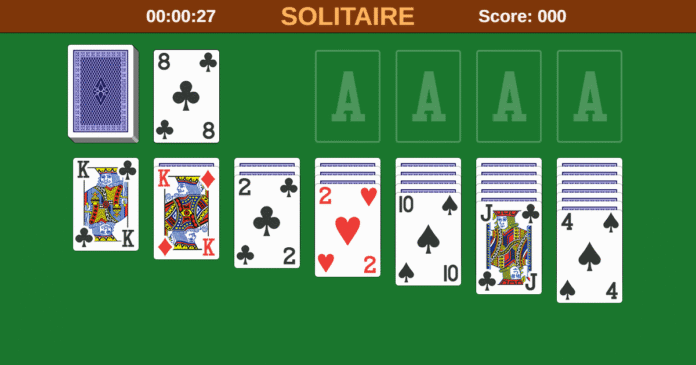The rise of browser-based games has made it easier than ever to enjoy classic games like Solitaire from virtually anywhere. With just a few clicks, users can engage in a stimulating and relaxing experience that offers both entertainment and mental engagement. However, as with any online activity, playing games online—no matter how harmless they may seem—requires attention to digital safety. This article explores practical tips and tools to help users stay safe while enjoying their favorite solitaire games online.
Why Online Safety Matters for Casual Gaming
Online gaming, even when limited to single-player card games, can expose users to certain risks. These include data privacy concerns, exposure to intrusive ads, malware from untrusted sites, and even phishing attempts disguised as pop-ups. Since many people believe that casual games are risk-free, they often let their guard down. That’s why adopting smart digital habits is essential, even for something as straightforward as playing Solitaire.
One of the most trusted platforms for playing Solitaire Free Online is Solitr Club, which offers an ad-light, user-friendly experience without requiring downloads or personal information. Still, regardless of the platform, staying vigilant is key.
Tip #1: Choose Reputable Websites Only
The first rule of safe online gaming is selecting platforms with strong reputations and transparent policies. Avoid sites that bombard you with pop-up ads, ask for excessive permissions, or require downloads to play a simple game. Look for reviews, HTTPS encryption in the web address, and platforms that don’t require account creation unless absolutely necessary.
Tip #2: Use an Updated Antivirus Program
Antivirus software is your first line of defense against hidden threats such as malware or spyware. Even if a Solitaire website looks clean, malicious scripts can be hidden in third-party ad placements or embedded media. A good antivirus tool can scan all web activity in real time and alert you if anything suspicious is detected.
Tip #3: Avoid Downloading Add-Ons or Plugins
Solitaire games can easily be played through your browser. If a website prompts you to install plugins or download executable files (.exe or .apk), this should raise immediate red flags. These downloads could potentially carry malware or attempt to alter browser settings without your consent.
Tip #4: Use a VPN for Extra Security
A Virtual Private Network (VPN) adds an extra layer of security by encrypting your internet connection and masking your IP address. This is especially useful if you’re playing on public Wi-Fi networks, such as in coffee shops or libraries, where your data could be more vulnerable to interception.
Tip #5: Be Cautious with In-Game Pop-Ups and Ads
Even on legitimate platforms, advertisements are sometimes served through third-party networks that may not always be secure. Clicking on ads that promise prizes, free rewards, or redirect you to unrelated websites should be avoided. These are often phishing attempts designed to steal your information or infect your device.
Tip #6: Keep Your Browser and Extensions Updated
Modern browsers like Chrome, Firefox, and Edge are equipped with built-in security features that help block malicious content. Make sure your browser is always updated to the latest version. Also, periodically review and remove any extensions that you don’t recognize or no longer use, as these can pose hidden risks.
Tip #7: Use Ad Blockers Wisely
An ad blocker can enhance both your safety and user experience when playing Solitaire online. It helps eliminate disruptive ads that may contain malicious content. However, be mindful that some websites rely on ad revenue to keep offering free games, so consider whitelisting trusted sites if they meet your safety criteria.
Tip #8: Don’t Share Personal Information
No reputable solitaire platform should ever ask for sensitive data such as your name, email, phone number, or payment information just to play a free game. If prompted for such information, it’s best to exit the site immediately. Avoid creating accounts or saving your progress unless you’re on a verified platform that clearly outlines how your data is protected.
Tip #9: Read the Privacy Policy
Although most users skip reading privacy policies, it’s a good idea to skim through them when using a new gaming platform. This document should explain how your data is collected, stored, and shared. If the policy is missing or overly vague, that’s a strong sign the website may not be safe to use.
Final Thoughts
Playing Solitaire online is an enjoyable and mentally stimulating way to pass time, but it’s not immune to the broader security challenges of the internet. Whether you’re an occasional player or a daily visitor, taking a few extra steps to ensure your digital safety is well worth the effort. By choosing trustworthy platforms, avoiding downloads, using security tools, and remaining alert, you can enjoy a smooth and safe solitaire experience.

